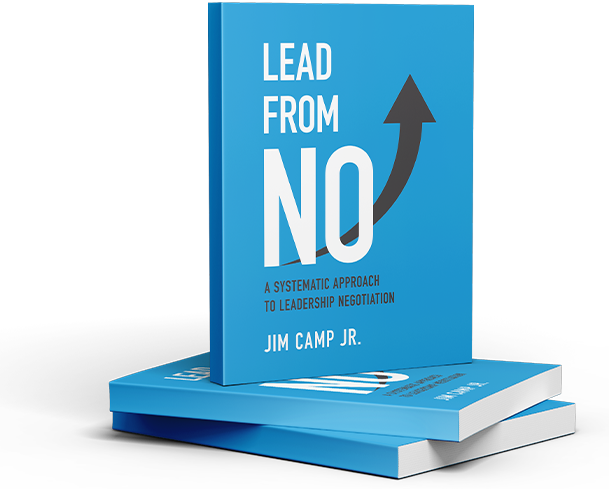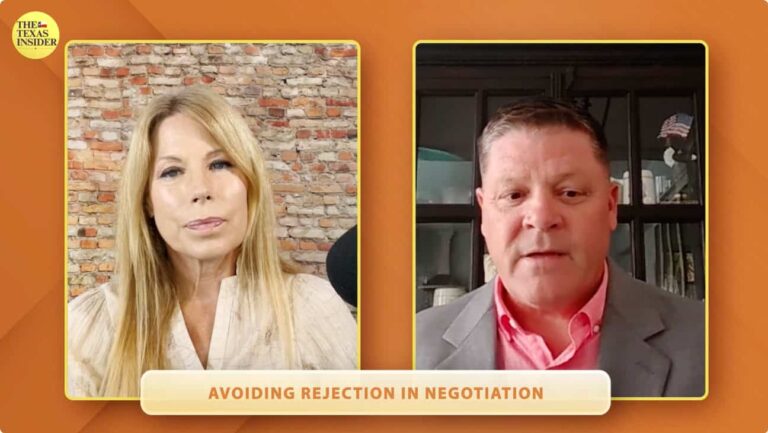Written by Allan Tsang, Camp Negotiation Coach
Picture this. You are a supplier that recently signed a big contract with a critical customer. It’s a massive win for your company. There’s only one problem: you have issues with your own suppliers. The first two orders to this customer were late, and now it looks like the third order will be delayed too.
Immediately after you realize this, you get a call from the customer. They aren’t messing around.
“Hey, I want to make sure that my order is shipping today. It’s been late twice, and I can’t have it happen again.”
Slightly panicked, you calm yourself enough to smile over the phone, take a breath, and lie. You tell your customer that it’s okay: the order is going out today. Your customer seems satisfied, even relieved. After you get off the phone, you consider what you did. It seems harmless. You bought yourself some time, and who knows? Maybe you will get it delivered on time?
It’s possible you’ve gotten away with similar fabrications before, but not this time. The order ships late, and the furious customer calls you. You’ve been busted.
Why We Lie?
“Never attempt to win by force what can be won by deception.”
Niccolò Machiavelli
People lie all the time in business as well as their personal life. It is a fact in our society, proven by the research of Robert S. Feldman, University of Massachusetts psychologist. He studied 161 students as they interacted with another person for 10 minutes. They were asked to appear likable, competent or given no instructions. After watching videos of themselves, 60% of students admitted that they had lied.
In our supplier example, the lie was an easy way to look better and avoid conflict. Besides, many companies do it. It is most likely that your own vendors lie to you.
Not all lies are the same. There are innocuous white lies, as well as malicious ones that harm personal and business relationships. The reasons we give for lying also vary.
Psychologist Dr. Paul Ekman argues that people lie for one of these eight reasons. These reasons are found often in negotiations and I’ve given business examples of each.
1. Avoiding punishment: People will often alter facts or perceptions to avoid negative consequences. People who do business unethically often use lies and manipulation to prevent the adverse effects of the truth.
2. Concealing reward or benefit: People often try to hide their real motivation for doing something. Bribery or quid pro quo are used to gain an unfair advantage through manipulation or deception.
3. Protecting others: People will sometimes lie to protect or show loyalty to others. Most people have experienced this through an employee or coworker “covering” for another. This form of deception seems noble, but it can harm the business or relationships. It also enables the person in question to continue with unwanted behavior.
4. Protecting oneself: People lie to preserve themselves. During a company downsizing, an employee may exaggerate their accomplishments or role in projects.
5. Privacy: Some people lie to avoid revealing information that they do not wish to divulge. The Camp Negotiation System ends this deception by creating a safe environment. All parties feel comfortable saying “no” to requests or questions to keep some information private.
6. Thrill: While rare, certain people enjoy deception not as a means to an end, but as the end itself. An unscrupulous salesperson may lie to the customer, even when nothing significant is gained. A best practice is to avoid doing business with this type of person.
7. Embarrassment: People are often willing to lie to avoid embarrassment. For example, a supplier tells a client that they shipped to the wrong address. The truth is that they are behind in production and haven’t shipped at all.
8. Politeness: People lie out of courtesy to preserve social harmony. You may compliment your co-worker’s subpar idea to avoid hurting their feelings. Dr. Ekman argues that this is not a lie or deception, because it is expected in our society. However, at least in negotiation, we can build stronger, longer-lasting agreements by cutting out much of the “filler and fluff lies.” In my experience, these filler lies push parties apart and weaken the ability to reach consensus.
The Solution: The Camp Negotiation System
“A lie that is half-truth is the darkest of all lies.”
Alfred Tennyson
While people say that they value honesty, by digging deeper, you often find that statement is a lie. Most people who preach morality only appreciate it when it is easy, as in short-term solutions or agreements.
One of the most compelling aspects of the Camp System is its “start with no” foundation. Camp Negotiators are trained to encourage both parties to say “no” whenever necessary.
The ability to say “no” at any time allows both parties to feel safe enough to share critical information, which in turn moves the negotiation forward.
Freedom to say “no” at any time cuts out much of the motivation for deception because it allows negotiations to proceed, even when there is an incredible amount of disagreement of conflict at the start.
How to Stop the Lies
Here are some essential tools that will help you build agreements in your negotiations. They can be used in business as well as your personal life. By mastering and practicing these steps, you will be able to end the need for deception in your negotiations.
1. Create a Safe Environment: Almost every lie is motivated by fear. This could be a fear of loss, fear of pain, fear of rejection, or fear of the unknown. The priority of every negotiator is to create a safe environment. It does not have to be comfortable; the goal is to push people out of their comfort zone. Often people will only move in that direction when they know that they can speak their mind without jeopardy.
2. Embrace Tactical Vulnerability: Building a strong and lasting agreement requires honesty and transparency from all parties. Be willing to start with yourself every time. You don’t need to try to be the intense, calculating, hard-nosed negotiator from a gritty cop drama. Nor do you need to pretend that you’re Mother Teresa. Be upfront with your motivations, your reservations, and your goals. The other party/parties will often be willing to reciprocate.
3. Eliminate Neediness: Focus on what you can control. You cannot determine another person’s actions. Never base your strategy on what you want or what you think they will do. People who are needy or desperate in a negotiation seldom get their way. Show people that you want to come to the table and play ball, but you’re willing and able to say “no” as many times as necessary to make the right deal.
4. Build Your Reputation on Integrity: I used to dread taking my car to the shop. I often felt that the mechanics would try to cut corners or recommend services that were not needed. Because of that, I was always shopping around. Then, I finally found a shop that I trusted. I take my car to them, as well as my wife’s and six children’s cars. Integrity always wins in the end. Good negotiators know and live by the principle that no short-term gain is worth the long-term damage. They control what they can and solve problems one step at a time by negotiating with integrity.
5. Solve Problems: In a negotiation, the way to bridge the gap between you and another party is to identify their pain or problem and solve it. Many people make the mistake of focusing on their own needs or desires. In reality, they will gain the most by working to solve the other party’s issues. This builds the trust and loyalty that’s needed to create stronger agreements.
6. Take Baby Steps: Nobody asks a stranger to marry them on a first date. Most people are aware that you need to know and trust someone before asking for a commitment. Knowing this, many people will still pitch the big sale without first laying down the groundwork and building the relationship capital needed. Good negotiators have the patience to listen, build rapport, and gain insight into their counterparts’ world. Only then can they help solve their problems and move the negotiation towards a close. In fact, the best negotiators never close. The deal closes itself.
The Camp System in Practice
Using the Camp System, let’s revisit the opening situation, where a shipment to a customer was late. Instead of lying, you take a deep breath and tell the truth. Undoubtedly, the customer is upset. Instead of making excuses, you say, “I understand we have let you down many times in the past. We failed to deliver on time. We must come across as if we don’t care about your business or that we are completely incompetent.” Your exasperated customer responds, “Yes! That is exactly how we feel!”
This vulnerability and admission of failure give voice to how the customer feels. Although it’s a hard confession, in return you’ll get a few precious minutes to explain your situation and propose a viable solution.
In the short time it takes that whole process, you’ve been able to create a safe environment. Now, both sides can express their frustrations, be vulnerable, and show integrity. You’ve opened the floor up for you to start solving the problem.
This example is based on real-world situations where the suppliers were:
- Not delivering on time
- Stuck in bad agreements
- Obligated to unfavorable terms with parties that refuse solutions
By using the Camp System, my clients had realized that by being honest, they kept communication with their customers open and found agreeable solutions. Often, they increased sales revenue and profit margins with those customers.
IS YOUR TEAM STUCK? CLICK HERE TO LEARN ABOUT OUR TEAM TRAINING
References
“Lessons from Machiavelli.” Driving Forward, https://drivenforward.com/lessons-from-machiavelli/.
“Umass Amherset Researcher Find Most People Lie in Everyday Conversation.” UMass Amherst News Archive, 10 June 2002, https://www.umass.edu/newsoffice/article/umass-amherst-researcher-finds-most-people-lie-everyday-conversation.
“Why People Lie.” Paul Ekman,https://www.paulekman.com/blog/why-people-lie/
“Alfred Tennyson Quotes.”, Goodreads, https://www.goodreads.com/quotes/120242-a-lie-that-is-half-truth-is-the-darkest-of-all.





